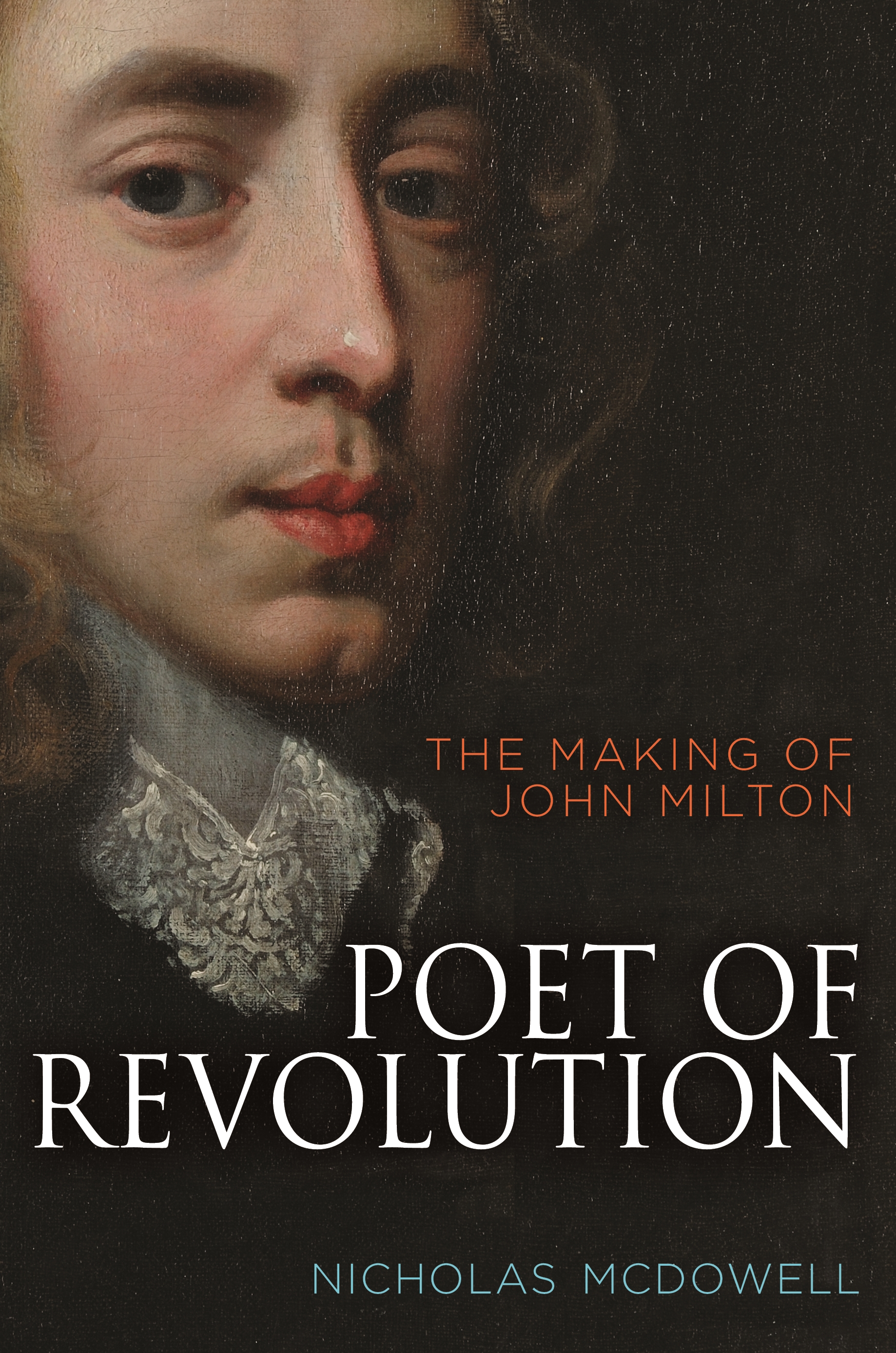-Review of new John Milton Biography
'Poet of Revolution- The Making of John Milton' - Nicholas Mcdowell published by Princetown University Press, out now.
Nicholas McDowell is Professor of Early Modern Literature and Thought at the University of Exeter. He is also co-editor of The Oxford Handbook of Milton ( amongst other publications).
John Milton ( 1608-1670) must be the leading poet of the British Civil Wars era. I have to lay my cards on the table, and concede that I am not a Milton scholar: I read 'Paradise Lost' twice during the Spring, and am familiar with Milton's sonnets dedicated to Lord Halifax and Sir Henry Vane the Younger. Have also recently discovered a translation of In Quintum Novembris , Milton's longest poem in Latin, written as a student at Cambridge University, around 1626 , about the Gunpowder Plot. So was wondering if I was out of my league when reading-and reviewing -this book. Especially as the biography is written by an esteemed academic. Another consideration is that the book only goes up to the start of the Civil War. Milton's involvement in the Commonwealth,his promotion to Secretary of Foreign Tongues to the Council of State in 1649, the subsequent publishing of his first collection of poetry in 1645 and or course the writing of Paradise Lost, are a long way in to the future.
But found this biography readable,incredibly informative, and certainly seemed intended for a wider readership beyond Academia. Also a book that I will refer back to. The author seeks how Milton's thought evolved to the point that he could present a written justification for the deposing a king as in Tenure of Kings and Magistrates (1649). What were the religious and intellectual influences that moulded Milton's support for a republic, as well as the inspiration to write epic poetry such as Paradise Lost .
It was fascinating to read about the lives of students at Cambridge at the time . How they were expected to give speeches and to compose witty epigrams in Latin, which had to be recited in front of their fellows. Though Milton joined the university in 1625, his studies got off to a bad start. His tutor Edward Chapelle whipped him and Milton was suspended from university for a few months in 1626. Milton returned and stayed until 1632, after changing tutors. And his poetry began to develop. He also wrote a masque Comus , which was performed at Ludlow Castle in 1634.
The account of Milton's travels to Italy via France 1638-1639 is fascinating. Interesting to note that Milton met Galileo in Florence in 1638, who had been under house arrest since 1633, along with many scholars in Rome.
The author is particularly keen to stress that it is best to avoid a polarity between the 'Laudian'( high Anglican) v. Puritan influences that existed at the University of Cambridge and elsewhere. The devotional aspects of Milton's early poems such as 'Nativity', 'Passion' or 'Upon the Circumcision' , which at first glance seem 'Laudian' or 'Catholic' were similar to those found in the work of the poet John Saltmarsh who was a fervent anti- Royalist. The author also assures the reader that Milton never accepted the Calvinist doctrine of predestination which was so popular amongst Puritans at the time.
The pastoral vision evident in the poem Lycidas which seems quite Pagan, is discussed . Personally the author's highlighting of Lycidas is probably the most that I gained from reading the book. Had to seek out the poem myself and discovered some really enchanting passages such as lines 88-94:
"And listens to the herald of the sea,
That came in Neptune's plea,
He asked the waves, and asked the felon winds,
What hard mishap hath doomed this gentle swain?
And questioned every gust of rugged wings"
A few lines are almost similar to the 19th century Romantic poets ( lines 132- 138)
"Return, Alpeus; the dread voice is past
That shrunk they streams; return Sicilian muse,
And call the vales, and bid them hither cast
Their bells and flowerets of a thousand hues
Ye valleys low, where the mild whispers use
Of shades, and wanton winds, and gushing brooks,
On whose fresh lap the swart star sparely looks."
The poem was part of an anthology in memory of University of Cambridge poet Edward King who perished aged 25 in a shipwreck: It was a tribute to Milton's early fame that he was asked to contribute in 1638- six years after he had left Cambridge.
Overall, I recommend this book. Felt that could read more of Milton's work in a new light after reading this biography taking into account a wide range of influences from his early years. And hope that the Professor will deliver a further book looking at the second part of Milton's life.
A further blogpost will look at the poetry relating to the Gunpowder Plot including the early work of John Milton.
Links
Previous posts relating to John Milton -from 'A Burnt Ship'
John Milton's poem about Sir Henry Vane the Younger
John Milton's ode to Lord Fairfax and the 1648 Siege Of Colchester.
Other Blogs by Michael Bully
Sincerely hoping that all visitors to this blog stay safe and well.
Michael Bully
26th October 2020



Comments
Post a Comment